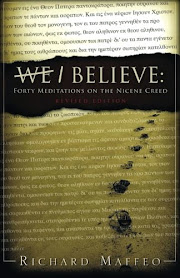And He Himself is the
propitiation [atonement] for our sins; and not for ours only, but also for
those of the whole world (1 John 2:2).
Jesus saved us from our sins. I’ve said it hundreds of times since 1972
when I discovered that breathtaking news. But the longer I walk with Him the
more I wonder how well I really understand what that means – not what He
did, but what I did.
I wonder how well I understand the depth of our sins. Its horror.
Its unrelenting and unspeakable evil – evil so foul that by itself alone heaven
convulsed. Evil that spit in His face. Lashed him with whips. Nailed Him to a
cross. Our lies. Our thefts. Our immoralities. Our pride. Our idolatries. Our .
. . our . . . our.
It was all ours.
So often I speak so glibly of our salvation without thought.
Without reflection. Like those at a dinner table discussing the weather – “Oh
yes, I am a sinner. Pass the biscuits, please.”
But if I took the time, time after time, to ask the Holy
Spirit to convict me anew, again and again, of sin, righteousness, and
judgment, if I took the time to contemplate the truth that my conversion in
1972 was not intended by God to be simply a one-time event, but an ongoing, day
after day recommittal of my life to Him, then I would not wonder as I sometimes
wonder, at Isaiah who, when he beheld the Lord, cried, “Oh God! I am a man of
unclean lips and I live among people of unclean lips” (Isaiah 6:1-7). I would not wonder as I sometimes wonder, at St.
John who, when he saw the risen Jesus in all His wondrous glory, fell on his
face as a dead man in recognition of who he was and who Jesus is (Revelation
1:17). I would not wonder, as I
sometimes wonder, at St. Peter who begged of the Lord, “Depart from me, for I
am a sinful man” (Luke 5:8), or St. Paul, who writhed in agony over his continuing
sins and wept, “Who will deliver me from the body of this death?” (Romans 7:24).
But what I do wonder is why I remain so insensitive to what I did – and to what I do – all of which resulted in what Jesus had to do on Golgotha. Why am I sometimes so casual with others about the Cross and the brutal death of our great God and Savior, Jesus Christ that purchased our salvation? How do I forget what Jesus said of the harlot who washed His feet with her tears: “He who is forgiven much loves much. He who is forgiven little loves little” (See Luke 7:47).
Oh, Lord! Open my eyes! According to your mercy and to what
I can bear, show me the sin – my sin – that sliced open your back and hammered
nails into your limbs. I want to know – really know –what it is for which I am
forgiven. I want to see it in all of its evil as you see it. I want to know
even as I am known, that I may love you the more for your great and ineffable forgiveness
toward me.
Amen.
